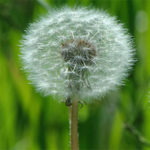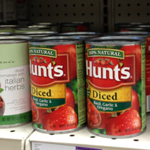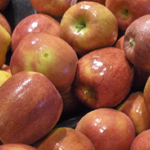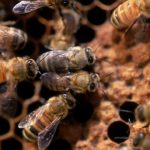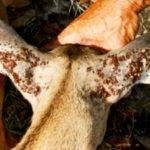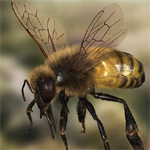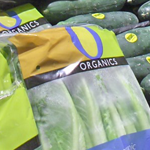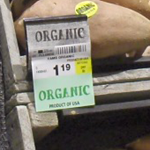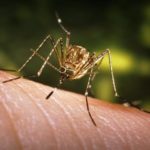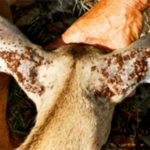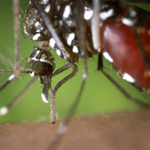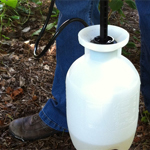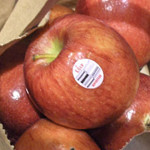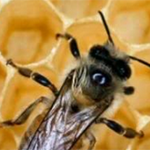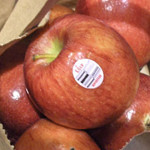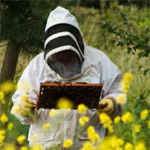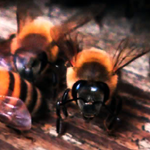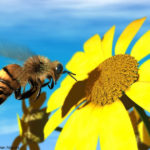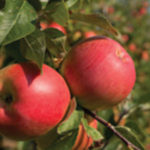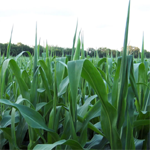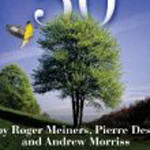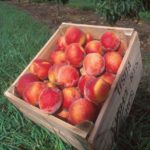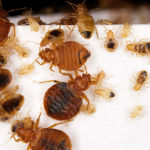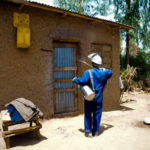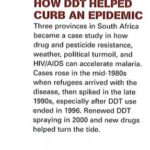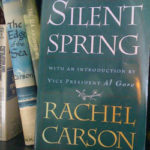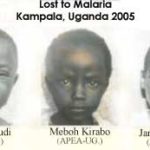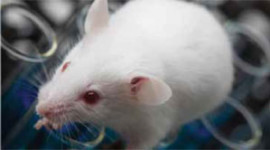"Berkeley Anti-Atrazine Crusader Blames 'Big Ag', Set To Sue, After University Dispute Over Dwindling Research Funds," by Jon Entine. Has ‘Big Ag’ finally nailed a long time nemesis? Or has an ideologically obsessed activist scientist with a long history of discredited studies finally fallen victim to his own bizarre behavior? Or has an ideologically obsessed activist scientist with a long history of discredited studies finally fallen victim to his own bizarre behavior? These are the … [Read more...]
Healthy Foods, Bad Advice
"Four Foods You Should Probably Eat," by American Council on Science and Health. CNN’s Dr. Sanjay Gupta interviewed David Jack, an editor from Men’s Health about five foods one should supposedly never eat. And the ridiculous claims made by Jack were soaked right up by Gupta. James Cooper sums up the poor science behind each claim made by “nutrition expert” Jack in an on-point editorial in the Examiner entitled “Sanjay Gupta bats 1 in 5 on foods you should never eat.” The five foods were … [Read more...]
Pesticide Residue Calculator
"Calculate Your Risk from Pesticide Residues," by Angela Logomasini. Ever worry how much pesticide residue you consume daily? Environmental activists, particularly at the Environmental Working Group, suggest that you can reduce your risks—and fears--by eating fewer of the fruits and vegetables with the highest residues, such as apples, and more of others, such as onions. IWF’s Julie Gunlock and I along with many others have pointed out why EWG’s claims are simply wrong. Read the full story on … [Read more...]
Honeybees & Pesticides
"Perspectives on Honeybees & Pesticides," by Angela Logomasini. If you believe the headlines, honeybees may soon be endangered, pesticides are to blame, and regulations offer an easy solution. Yet headlines belie the truth of the matter: Some honeybees have left their hives to never return, but we really don’t know why. Referred to as “colony collapse disorder,” the disappearance of honeybee colonies raises concerns that it will be increasingly difficult to produce food without enough of … [Read more...]
No ‘Bee-pocalypse,
"Everyone Calm Down, There is No 'Bee-pocalypse,'" Shawn Regan. Honey BeeThe media is abuzz once again with stories about dying bees. According to a new report from the USDA, scientists have been unable to pinpoint the cause of colony collapse disorder (CCD), the mysterious affliction causing honey bees to disappear from their hives. Possible factors include parasites, viruses, and a form of pesticide known as neonicotinoids. Whatever the cause, the results of a recent beekeeper survey suggest … [Read more...]
Health Toll of Anti-Pesticide Policies
"Humans Pay the Price for Anti-Pesticide Policies," by Angela Logomasini. I recently went home to Long Island to find that one of my siblings was undergoing treatment for a dangerous tick-transmitted disease. This isn’t the first time my family has suffered from a tick-related illness, and I blame New York State officials in part for outlawing useful tools to fight the region’s growing tick and mosquito populations. Read the full article at the Daily Caller. … [Read more...]
Accidental Bee Kill Not Excuse for Bans
"A Stinging Rebuke of Anti-Agriculture Environmental Activists," by Jeff Stier. An estimated one hundred people braved scorching outdoor temperatures to attend a memorial service earlier this month. The honorees, however, were not heroes, community figures, or even human. They were bees apparently killed by accident in Wilsonville, Ore. Deemed a "bee kill," the insects were found dead in a Target parking lot after a pesticide was sprayed on trees infested with aphids. Media attention to the … [Read more...]
Certified Organic, Yet Untested for Safety
"Organic Crops Are Tested For Pathogens, Right? Nope," by Mischa Popoff. View of rows of green and red lettuces.The United States Department of Agriculture (USDA) prohibits synthetic nitrogen fertilizer in organic production and encourages natural compost. But it does not test for un-composted feces, relying instead on record-keeping and record-checking. As I have said before, this can create serious problems. At least 140 people across eight states have now fallen ill after consuming … [Read more...]
Greens Exploit Accident for Anti-Pesticide Agenda
"Anti-Pesticide Group Deplorably Exploits Tragedy in India to Promote Their Agenda," by American Council on Science and Health. Last week, 25 children in India died — and many others sickened — as a result of organophosphate pesticide poisoning which contaminated the children’s school lunches. It is suspected that the rice or cooking oil used to prepare the food contained lethal levels of the neurotoxin. This is even more of a tragedy given that this school lunch program was developed by the … [Read more...]
Is Organic Food Really More Ethical?
"Organic Food – What is an ‘Organic’ Label Really Worth?" by Jon Entine." Consumers are willing to pay a premium for organic products, but the realities can mean you get little more than a psychological boost for your buck. Supermarkets in North America and Europe are overflowing with organic-labelled fruit, vegetables, eggs and meats. More than 80 countries have organic standards and products carry one or more of 200 seals, logos and certification claims. But are consumers able to make informed … [Read more...]
Unreasonable Precaution
"The Precautionary Principle is a Blunt Instrument, a 90s Throwback Out of Place in an Era of 'Smart Solutions' and Big Data," by Tracey Brown. A world of over seven billion people faces some pretty complex questions about the trade-offs involved in producing food, using resources, reducing disease and achieving the societies and environments in which we want to live. There's a collision between short-term and long-term outcomes, narrow interests and broader ones, and between problems and … [Read more...]
Call for Mosquito Spraying on Long Island
"ACSH Sets Ocean Beach Straight: Mosquito Spraying is the Right Thing to Do," by American Council on Science and Health. When ACSH’s Dr. Josh Bloom, a long time resident of Ocean Beach on Fire Island, learned that his close friend Jim Capuano— a six year survivor of stage-4 colon cancer— nearly died last year from West Nile encephalitis, he knew he had to at least try to do something. The problem was a counterproductive policy that was instituted by the village decades ago—opting out of the … [Read more...]
NYS Bureaucrats Contribute to Tick Problem
"New York State Bureaucrats Block Lyme Disease Control," by Angela Logomasini. As Americans gather outdoors to celebrate the 4th of July, ticks are also out — and in record numbers — particularly in certain places like the East End of Long Island. According to the Sag Harbor Express, New York State Department of Health officials recommend that individuals protect themselves by staying inside (the Health Department website does offer some more useful advice). Seriously, that’s just dumb, … [Read more...]
Pesticide Ban Problems
"Problems With Pesticide Ban," by K. The province government needs to address some concerns about its proposed cosmetic pesticide ban, says the president of Keystone Agricultural Producers. Conservation Minister Gord Mackintosh announced last week that legislation will be introduced in fall that will ban synthetic weed control products beginning in December 2014, with a one-year grace period. The prohibition will apply to lawns, driveways, sidewalks and patios, as well as school grounds, … [Read more...]
Attack on Pesticides Could Increase West Nile Virus Risk
"Alarmism May Contribute to West Nile Virus Illnesses," by Angela Logomasini.. Alarmism and junk science surrounding pesticides may translate into more sicknesses and deaths related to the mosquito-carried West Nile Virus. Activists and others are attacking products that local public officials need to reduce mosquito populations and public health risks. In the past, activists have attacked insect repellants containing the chemical DEET. But one of the best things you can do to reduce risks for … [Read more...]
Pesticide Exposure and Low Cancer Rates
"For Longer Life and Less Cancer: Pesticides!?" by American Council on Science and Health. A large, U.K. government-supported study, The Pesticide Users’ Health Study, 1987-2005 (PUHS) was released this week. This huge evaluation of various health outcomes focused on mortality and cancer incidence data collected from 59,000 male and 4,000 female certified pesticide commercial users over almost two decades. The results, which are sure to come as a welcome surprise to those who are truly … [Read more...]
Pesticide Hype Debunked
"Debunking Agriculture Alarmism: Pesticides," by Julie Gunlock. My Facebook newsfeed lights up the same time each year with suggestions from many of my well-meaning (yet somewhat gullible) Facebook friends that they plan to protect their kids from scary pesticides by avoiding the “dirty dozen”—a list compiled by the junk science peddlers over at the Environmental Working Group (I refuse to link to their site. If you want to find them, just Google “crazy lying liars that make moms cry”). Read … [Read more...]
Pesticide Workers’ Low Cancer Risks
"Cancer Rates Low Among Pesticide Workers," by Angela Logomasini. If chemical exposures are a significant cause of cancer, as some environmentalists say, you’d expect that individuals who apply pesticides for a living would have higher cancer rates. But a recent study conducted by the U.K.-based Health and Safety Laboratory indicates, that’s not the case—at least not for pesticide workers. The study looked at mortality among 59,085 male and 3,875 female commercial pesticide applicators, and … [Read more...]
Pesticides & Human Health
"Pesticides Kill Pests, And Protect Lives," by Alan Caruba. A bit of personal history; in the 1980s I was engaged by the U.S. producer of a pesticide called Ficam to develop case histories about its use. Ficam is applied with water and it killed off a wide range of common insect pests. There is no odor and there is no hazard to humans when correctly applied, but at some point the Environmental Protection Agency told the producer it would have to go through the entire process of re-registering … [Read more...]
Pesticides and Parkinson’s
"Exposure to “Pesticides” a Risk Factor for Parkinson’s? Not so Fast!," by American Council on Science and Health. A new study published in the journal Neurology tries to suggest that there may be an association between exposure to pesticides and solvents and Parkinson’s disease. Even the study authors are blatantly aware of the shortcomings of their study when they say, the evidence is “limited, or at least inconclusive,” because of “lack of definitive agreement between cohort and case-control … [Read more...]
Honeybee Health
"For a Responsible Approach to Bee Health, Ignore the Activists," by Jeff Stier. Bees pollinate a host of important crops, from fruits and nuts such as oranges, blueberries, apples and almonds, to row crops such cotton, canola, and soy. But the last few decades have been tough for bee populations, which have experienced larger than normal winter die-offs. Read the full article on the Huffington Post. … [Read more...]
EWG Is Wrong Again
How Wrong Is The Latest "Dirty Dozen" List? by Steve Savage. The Environmental Working Group (EWG) says that it "helps protect your family from pesticides." The purpose of this Applied Mythology post is to "help protect your family from dangerously misleading information from the EWG." Each year since 1991, the USDA has been publishing the results from a large-scale pesticide residue monitoring program called the PDP. Each year, a different set of crops is chosen and samples are purchased from … [Read more...]
Anti-Pesticide Activists and Honeybees
"Chemophobic Anti-Pesticide Groups Are At It Again," By Paul Driessen. Modern environmentalism rose to ascendancy on opposition to pesticides, specifically DDT. “If the environmentalists win on DDT,” Environmental Defense Fund scientist Charles Wurster told the Seattle Times in 1969, “they will achieve a level of authority they have never had before.” Using Rachel Carson’s often inaccurate book Silent Spring to drive a nasty campaign, they succeeded in getting the Environmental Protection … [Read more...]
Bees and Pesticide Regulation
"Will We ‘Bee’ Smart about Pesticide Regulation? by Henry Miller. On April 29, the European Commission failed for the second time to get the votes necessary to pass a proposed two-year ban on several innovative agricultural pesticides known as neonicotinoids (“neonics”). But immediately after reporting that a “qualified majority” of member states had not been reached, the Commission’s health and consumer affairs commissioner, Tonio Borg, announced that he would institute the ban … [Read more...]
Junk Science, EWG, and FOX News
"Surprising Junk Science on FOX News," by Angela Logomasini. News stories trumping junk science are common, but I expect better from FOX News, which claims to be “fair and balanced” and hosts great shows like STOSSEL. And they’ve run some of my commentaries, which I appreciate. That’s why I am perplexed by some FOX reports on environmental issues, many of which seem to peddle junk science pushed by activists at the Environmental Working Group (EWG). Read the full article on OpenMarket.org. … [Read more...]
Bee Colony Collapse & Anti-Pesticide Activists
"Collapse Of Bee Colonies Is Latest Target For Anti-Pesticide Groups," By Paul Driessen. Beekeeping is big business, and everyone loves honey and foods made possible by pollination. But "colony collapse disorder" threatens bees and crop pollination in many areas. CCD and other bee die-offs are nothing new. What we now call colony collapse was first reported in 1869, and many outbreaks since then have sent scientists scurrying for explanations and solutions. Fungi, varroa mites and other … [Read more...]
EWG Dirty Science
"Dirty Dozen List Loses its Punch," by Richard Cornett. This year’s release of the Dirty Dozen List produced by the Environmental Working Group (EWG) is beginning to shed its sizzle because of a full-court press by agricultural interests to focus on science-based information. Each year the EWG comes out with a list that ranks fruits and vegetables according to pesticide residue levels. For years the list has been a constant irritant to agriculture because it gives the impression that … [Read more...]
Pesticide Scare Debunked
"Environmental Activist Scare Debunked," by Jeff Stier. In a piece for the Huffington Post, Dr. Henry I. Miller and I take on the Environmental Working Group for scaring the public about the safety of fruits and vegetables. We also take on the scare-hungry media for reporting on the junk-science as if it had any merit. Read the full story on the NCPPR blog. … [Read more...]
Are Pesticide Residues Dangerous?
"Nutritious Apples, Poisonous Claims," By Angela Logomasini Eat fewer apples, strawberries and grapes, and more corn, onions and pineapples, and you’ll protect yourself and your children from “toxic” pesticides, according to the Environmental Working Group’s 2013 Shopper’s Guide to Pesticides in Produce. This advice, however, is nothing more than dangerous hogwash. Read the full article in the Washington Times. … [Read more...]
Beekeeper Fingers Ethanol Mandate
"My Bees, Pesticides and Washington State's Biofuel Mandate," by Todd Myers. The sun is slowly arriving and the bees in my new beehives, as well as bees across the Northwest, will be happier for it. As they begin to pollinate flowers and orchards, however, they will face a number of challenges: Varroa mites, wasps, pesticides and loss of suitable bee pasture. Recently, various members of the environmental community have seized on the threat from one type of pesticide, known as neonicotinoids, … [Read more...]
The Poltics of Bees and Neonicotinoid Insecticides
"The Politics of Bees Turns Science on its Head -- Europe Bans Neonics While Local Beekeepers, Scientists Say Action is Precipitous," by Jon Entine. In a move they say will protect bees, the European Commission announced on Monday that it would impose a two-year ban on neonicotinoid insecticides, although a sharp divide remains whether politics or science is driving this policy change. .... They have announced that the ban will likely become effective at the end of the year even though the … [Read more...]
Study of Roundup Herbicide: Junk Science
"Is Glyphosate Poisoning Everyone?" by Derek Lowe. I've had a few people send along this article, on the possible toxicological effects of the herbicide glyphosate, wondering what I make of it as a medicinal chemist. It's getting a lot of play in some venues, particularly the news-from-Mother-Nature outlets. After spending some time reading this paper over, and looking through the literature, I've come to a conclusion: it is, unfortunately, a load of crap. Read the full article on Corante. … [Read more...]
Phoney Science on Roundup Herbicide
"Condemning Monsanto With Bad Science Is Dumb," By Tamar Haspel. Did you see the latest indictment of Monsanto making the rounds? It's a "peer-reviewed" paper in the journal Entropy, co-authored by Anthony Samsel and Stephanie Seneff, blaming glyphosate, the compound in the herbicide Roundup, for virtually all the ills that can befall us. But here's the thing -- they made it up. Read the full article on Huffington Post. … [Read more...]
Honeybees and Neonicotinoid Pesticides
"Push to Ban Neonicotinoid Insecticides Takes on Political Overtones: Honeybee Research Questioned," by The National Cotton Council. As environmental activists coalesce around a ban on the neonicotinoid insecticides as the cause of Colony Collapse Disorder (CCD), a timely article recently published in Forbes magazine by Jon Entine, a senior fellow at George Mason U., calls for cooler heads to prevail on the issue. Entine points out that, over the past five years, some 30 percent of bees in the … [Read more...]
Organic Food “Cult
"The Cult of Organics," by Julie Gunlock At a playdate with a group of mothers, I once horrified an impossibly hip, young mom by telling her I refused to eat organic food because it was too expensive and that I felt I wouldn't be buying a better product. The look of shock on her face made me wonder if I had suddenly experienced a Janet Jackson-esque wardrobe malfunction. After glancing down to make sure I wasn't flashing anyone (and to check that Justin Timberlake wasn't lurking behind a bush), … [Read more...]
Activists Misrepresent FDA Data on Pesticides
"Alliance for Food and Farming: Read Actual USDA Pesticide Report, Not Re-Interpretation," by Alliance for Food and Farming. Last month the United States Department of Agriculture released its annual Pesticide Data Program Report. Among the USDA findings -- "U.S. food does not pose a safety concern based upon pesticide residues." In light of activist groups' annual release of their re-interpretation of the USDA PDP report findings, the Alliance for Food and Farming (AFF) urges the media and … [Read more...]
Insights on Bees and Colony Collapse Disorder
"Colony Collapse Disorder—it Sounds Catastrophic and Frightening," by Jon Entine. It’s estimated that over the past five years, some 30 percent of bees in the United States have either disappeared or failed to survive to pollinate blossoms in the spring. That’s about 50% more than the rate expected. The problem is direr in some other countries. In Spain, recent data indicate a loss close to 80% of beehives. On the other hand, in Canada and Australia, there is no sign of Colony Collapse … [Read more...]
Pesticide Alarmism Dangerous
"Alarmism About Pesticides Can Be Dangerous," by Carrie L. Lukas IWF has written before about the often overlooked benefits of innovation in agriculture (such as genetically modified foods) and the serious unintended consequences when environmentalists get it wrong. Read the full article on IWF's Inkwell Blog. … [Read more...]
Chemical DDT Saving Lives in S. Africa
"South Africa Using its Smarts — and DDT — to Prevent Malaria," by American Council on Science and Health. Dichloro-Diphenyl-Trichloroethane (DDT) continues to be used in South Africa in the hopes of eliminating the spread of malaria in the country by 2018. DDT has proved to be a vital tool in working to reach this goal, and South Africa was praised for its efforts in dealing with the spread of malaria at an African Union event. Read the full story in ACSH Dispatch. … [Read more...]
Atrazine Study: No Cancer Risk
"Atrazine: Still not a Carcinogen," by American Council on Science and Health Experts have looked at the evidence condemning the weedkiller atrazine as a “carcinogen” and found it wanting. The four researchers were affiliated with the Tisch Cancer Institute, Mount Sinai School of Medicine, Harvard University and the University of London. Read the full story on ACSH Dispatch. … [Read more...]
Atrazine: Risks Low, Benefits High
"Herbicide Poses No Cancer Risk In Drinking Water," by Angela Logomasini. Over the years, the Environmental Working Group (EWG) and the Natural Resources Defense Council (NRDC) have repeatedly issued bogus reports claiming that Americans face serious cancer risks from trace chemicals found in drinking water. A new study challenges their claims regarding one of these activists’ key targets: the herbicide atrazine, which farmers use to control weeds rather than tilling the soil. Read the full … [Read more...]
Faulty Cancer Scare Related to Styrofoam Cups
"Cancer Risks Unlikely From Foam Cups," by Angela Logomasini. Whatever happened to plastic foam coffee cups? Visit any to-go coffee shop and you will most likely only find paper cups that burn your hands and let your coffee go cold. Cups made with polystyrene foam are disappearing from the marketplace because a bevy of misinformation about their environmental effects, including claims styrene — the chemical used to make them — is a carcinogen. Read the full article on OpenMarket.org. … [Read more...]
Pesticides Applied to “Organic” Crops
"Organic Pesticides: Ask Someone who Knows," by American Council on Science and Health. As you may recall, yesterday’s Dispatch covered a distorted, alarmist story on the harms of pesticides. Will Westerling, a licensed Pest Control Advisor in the State of California, wrote in with his views. "As a licensed Pest Control Advisor in the State of California who manages several thousand acres of both conventional and organic fruits and vegetables I can assure you that there is no shortage of … [Read more...]
Pesticide and Cosmetics
"The Pesticide and Cosmetic Pests are Back," by American Council on Science and Health. As the year comes to an end, the scares keep coming, today — as often before — in the form of pesticides and cosmetics. These alarmist stories are simply baseless and raise needless consumer concerns based only on the precautionary principle. Read the full story in ACSH Dispatch. … [Read more...]
“Toxic” Christmas Stories
"Have You Decorated Your Home With Poisons For Christmas?" by Emily Willingham. Here’s a holiday manufrightroversy to watch for: Lead and pesticides … for Christmas! Every year, it seems, reporters go forth on orders from their editors to write articles warning the world of the dangers of Christmas decorations. One example from 2010 is this USA Today piece by Liz Szabo, “Advice on avoiding a toxic Christmas.” But here’s the rub: There are very limited to no data to show ill effects, in spite of … [Read more...]
Year Closes Carson Anniversary
"Year Ends 50th Anniversary of Silent Spring An Unhappy Legacy Continues," by Angela Logomasini This year marked the 50th anniversary of biologist Rachel Carson’s 1962 book, Silent Spring. Although the anniversary is soon to become history as well, Carson’s impact promises to continue well into the future—and it’s not something to celebrate. Carson was right to advocate for careful use of pesticides, but her harsh rhetoric needlessly raised excessive alarm. She postulated man-made chemicals … [Read more...]
Study on Benefits of Pesticides
"Rachel was Wrong: Agrochemicals’ Benefits to Human Health and the Environment," by Angela Logomasini. This year marks the 50th anniversary of biologist Rachel Carson’s 1962 book, Silent Spring, which argued that man-made chemicals represented a grave threat to human health and the environment. Using harsh and unscientific rhetoric—which was rebuked in the journal Science magazine shortly after its publication—Carson postulated that man-made chemicals affect processes of the human body in … [Read more...]
Pesticides and Food Allergies
"Bogus study tries to link pesticides with food allergies," by American Council on Science and Health. No matter how many scientists explain that there is no real evidence suggesting that pesticides are harmful when used appropriately, they continue to be the subject of a number of health scares — the most recent linking pesticides to food allergies. Researchers led by Dr. Elina Jerschow of Albert Einstein Medical College used existing government data to see whether people with more … [Read more...]
Jeff Steir on Green TV
"Organic Farmers Use Pesticides Too," with Jeff Steir. … [Read more...]
Organic Label Meaningless
"Canada’s organic food certification system ‘little more than an extortion racket,’ report says," by Adrian Humphreys. Inside the enormous Whole Foods Market in Oakville, west of Toronto, a red and yellow streaked Honeycrisp is plucked from the top of an orchard’s worth of apples in wooden crates near the entrance. A round sticker near its stem says: “Certified Organic.” At $7.68 a kilo, four of them cost $6.51. Firm, juicy and sufficiently tart, it’s a tasty apple, to be sure. But what does … [Read more...]
Tests Find Insignificant Pesticide Residues on Food
"State's pesticide residue is low, officials say Officials test 3,000 fruits, vegetables sold in California," by Robert Rodriguez. State officials tested nearly 3,000 fresh fruits and vegetables sold in California last year and found that a majority did not have any detectable pesticide residues. The annual check is part of the California Department of Pesticide Regulation's residue detection program -- one of the most extensive in the nation. The program sampled more than 160 types of domestic … [Read more...]
Malaria & DDT
"Malaria fighters speak out to support DDT use," by American Council on Science and Health. Inspired by Rachel Carson’s anti-science book “Silent Spring,” the ban on the Inspired by Rachel Carson’s anti-science book “Silent Spring,” the ban on the chemical DDT has cost countless lives through an upsurge in malaria. (DDT is used to control mosquito populations, which spread the disease). Now it seems the United Nations Environmental Programme is violating the Stockholm Convention by pressuring … [Read more...]
“Silent Spring” Critique
"'Silent Spring' revered and overwrought," by Rory Cohen. In the late 19th century, the Audubon Society was created to address concerns about disappearance of American bird species. These concerns stemmed not from fear over chemicals, but were due in large part to women's hat fashions that required the slaughtering of birds for feathers. "That there should be an owl or ostrich left with a single feather apiece hardly seems possible," an 1897 issue of Harper's Bazaar commented. Egg collection, … [Read more...]
Dr. Oz Very Wrong about Organic Food
"Organic Food Worth it?" by Jeff Stier. The federal government annually spends millions of taxpayer dollars promoting and regulating organic agriculture. Is it worth it? In a piece for Real Clear Science, I explain why pro-organic arguments made by the likes of popular television health guru, Dr. Oz, are just plain wrong: "Remember the large-scale study from Stanford last month that said that organic foods aren’t necessarily healthier? The study has spurred a raging debate between organic food … [Read more...]
Pesticides and Autism
"Are Pesticides A Key Driver Of The Autism Increase?" by Emily Willingham. An anti-pesticide manifesto from the Pesticide Action Network North America (PANNA) has recently made a few headlines in big papers and nabbed a feature on an NPR member station with claims that “children today are sicker than they were a generation ago” and that pesticides are a “key driver” of the increase in childhood disorders such as “childhood cancers … autism, birth defects, and asthma.” The news reports almost … [Read more...]
American Academy of Pediatrics: Organic Food not Safer or Healthier
"Organic foods have fewer pesticides, aren’t necessarily better, influential pediatricians say," by Lisa Morrison. CHICAGO — Parents who want to reduce their kids’ exposure to pesticides may seek out organic fruits and vegetables, but they aren’t necessarily safer or more nutritious than conventional foods, the nation’s leading pediatricians group says in its first advice on organics. Science hasn’t proven that eating pesticide-free food makes people any healthier, the American Academy of … [Read more...]
Overselling Benefits of Organic Food
"Organic Oz: Overselling the Benefits of Organic Food," by Vicki E. Alger Not more healthy, but more expensive. That’s the basic conclusion of a recent Stanford University study on organically grown food. “There isn’t much difference between organic and conventional foods, if you’re an adult and making a decision based solely on your health,” according to Dena Bravata, the study’s senior author. Read the full article on the IWF Blog. … [Read more...]
Potential Advantages of Increased Pesticide Use
"When Increased Pesticide Use Is A Good Thing," by Steve Savage A recent study published in Environmental Sciences Europe has attracted attention because it documents a net increase in pesticide use on genetically engineered crops in the US. The author, Chuck Benbrook, is certainly qualified to consider pesticide issues, and I have had positive interactions with him over the years; however as an organic advocate he has a very different perspective on pesticides than I do. Chuck is certainly … [Read more...]
Pestcides and Science
"Science, not Politics, must Decide Pesticide Debate," by Doug Chorney Manitoba Conservation Minister Gord Mackintosh indicated last week it was all but certain the government would implement a ban on urban pesticide use in the province. It appears as though he made up his mind before the public consultation period ending on Oct. 1 was over. Read the full article on the Winnipeg Free Press. … [Read more...]
Carson Still Wrong after 50 Years
"50 Years Later: Rachel Carson Is Still Wrong," by Angela Logomasini Back in 1996, the Competitive Enterprise Institute’s Jonathan Tolman authored an article entitled “Rachel Was Wrong,” in which he explained why biologist Rachel Carson mistakenly condemned chemicals — and pesticides in particular. This month marks the 50th anniversary of her in her 1962 book, Silent Spring, which history shows is, in fact, still wrong. Read the full story on OpenMarket.org … [Read more...]
Organic Food Not Really ‘Special’
"To be Organic or not to be Organic, Why ask the question?" by Sterling Burnett For many years, environmentalists – many of whom seem to hate the very synthetic chemicals that make modern society, high standards of living and the modern “environmental chic” lifestyle possible – have teamed with a small but growing sub-segment of farmers to push for policies that treat ‘organic’ agricultural products as if they were special. Read the full article on the NCPA blog. … [Read more...]
No Need to Fear Pesticides
"Are Lower Pesticide Residues a Good Reason to Buy Organic? Probably Not," by Christie Wilcox. A lot of organic supporters are up in arms about the recent Stanford study that found no nutritional benefit to organic foods. Stanford missed the point, they say—it’s not about what organic foods have in them, it’s what they don’t. After all, avoidance of pesticide residues is the #1 reason why people buy organic foods. Yes, conventional foods have more synthetic pesticide residues than organic … [Read more...]
Study Addresses Pesticides & Honeybees
"Pesticides not yet Proven Guilty in Bee Dieoffs: Study," by the University of Exeter and World Science staff. Contrary to some previous studies, crop pesticides are unlikely to cause devastating declines in honeybee populations, the authors of new research say. Writing in the Sept. 20 issue of the journal Science, U.K. scientists from the University of Exeter and Food and Environment Agency said more work is needed to predict the impact of widely-used … [Read more...]
Today’s Pesticides Safer than You Think
"Pesticides: Probably Less Scary Than You Imagine," By Steve Savage The word "pesticide" conjures up negative, scary images. These images come from old organophosphate insecticides of the 1960s that killed fish and birds and caused farm worker illness. These are sorely outdated images. What most people don't know is how much safer the new generations of pesticides are. In fact, scores of old materials have been withdrawn from the market or banned long ago. The new products are mostly … [Read more...]
Vegetarians, Organic Food, and Science
"Vegetarianism: The Future Of Food For Poor People," by Hank Campbell. What would the world look like with 7 billion people and no way to scientifically have created better ways of producing food? A lot of poor vegetarians, that's what. And only rich people eating meat. Organic food corporations love to claim that their process is 'sustainable'. Vegetarians love to claim that meat is both unethical and bad for the planet. It makes them happy partners ... as long as science is ignored. Read … [Read more...]
Jeff Stier Discusses Bloomberg Failure to Address West Nile
"Jeff Stier Discusses Mayor Bloomberg's Failure to Lead in the Fight Against West Nile Virus in NYC," by David Almasi. On the September 12, 2012 edition of “Good Day New York” on Fox5-New York, National Center Risk Analysis Division director Jeff Stier says the Bloomberg Administration’s response to the threat of West Nile virus is “too little, too late… We need to do more.” Jeff says Mayor Bloomberg and his staff were too fixated on their own nanny-state agenda of regulating behavior and too … [Read more...]
Risks from Pesticide Residue Negligible
"Do You Really Need To Buy Organic To Avoid Pesticide Residues?" by Steve Savage. Last week, a meta-analysis from a highly credible academic source (Stanford University, its medical school and nearby institutions), raised serious questions about the often-touted nutritional advantage of organic food. They digested the contents of 237 peer reviewed articles comparing organic and conventional foods and diets. They concluded that "the published literature lacks strong evidence that organic foods … [Read more...]
Debate on Organics is Over
"Debate on Organics is Over: The National Center was Right!" by David W. Almasi. Two landmark reports were issued this week that cast doubt on the health and safety benefits used to cheerlead for organic foods over conventional foods and the means of procuring them. Since 2000, the National Center has urged people to eschew the hype over organic grandstanding. A newly-released study by Stanford University researchers — reportedly the largest study of its kind — finds that there are no real … [Read more...]
Organic Foods No Better than Conventional
"Organic Foods Provide no Health Bonus," by Roya Heydari For years now, the organic food industry has staked its business on the idea that “organic” means “healthier.” And for just as long, ACSH has been saying that the claim is false: There are no nutritional or safety differences between foods produced according to organic standards and those produced by means of conventional agricultural methods. Now, a study appearing in the current issue of Annals of Internal Medicine provides evidence … [Read more...]
Bloomberg Refuses to Spray to Control Deadly West Nile Virus
"City To Mosquitoes: Don't Drop Dead," by Jeff Stier. In an op-ed in today’s New York Post, I explain why Mayor Bloomberg and his nanny-state health commissioner are putting New Yorkers at risk by failing to stand up to environmental activists who oppose the responsible use of low-concentration pesticides to kill disease-spreading mosquitoes: "As the city headed into the Labor Day weekend, six new West Nile cases were reported — bringing Gotham’s total to 14 (with one fatality) for 2012, up … [Read more...]
Organic Food Not Safer
"Organics: No Healthier?," by Julie Gunlock. A new study says organic meat and produce is no healthier than conventionally grown products. hile this is bad news for the organic industry which promotes the idea that organic food is healthier than conventionally produced food, this is great news for the average shopper who wants to provide healthy meals for their families without spending a fortune. Armed with this information, moms might more easily choose the less expensive item and that’s a … [Read more...]
Science in Government and the Private Sector
"There Are A Thousand Ways To Do An Experiment Wrong," by Henry Miller and Jeff Stier on Forbes.com The 18th century philosopher and economist Adam Smith observed, "People of the same trade seldom meet together, even for merriment and diversion, but the conversation ends in a conspiracy against the public, or in some contrivance to raise prices." That view is one justification for giving federal agencies so much money, control and discretion over commerce and other aspects of our lives. And … [Read more...]
West Nile Outbreak in Texas
"West Nile Virus Hits Texas Hardest of All," by American Council on Science and Health. West Nile virus has reached a state of emergency in Dallas County, Texas this summer. Thus far, the area has seen 200 cases of human infection and 10 deaths from the mosquito-borne virus now endemic to the U.S. And while the infection rate is the worst in Texas, the CDC reports 693 cases of West Nile virus nationwide. No other state besides Louisiana, however, reported more than one death from the disease. … [Read more...]
Testing for Organic Food Certification
"It’s Time to Start Testing Organic Food " by Jay Lehr. There can be no mistaking the fact that modern agriculture is under attack. Gone are the days of saving the whales or attacking logging companies for cutting down trees. The latest environmental “bad guy” is the farmer who grows the food you feed your family. This attack against farming has occurred mainly in the form of sustained and very negative public-relations campaigns, but it has also made its way into the nation’s courtrooms. It … [Read more...]
Silent Spring at 50
"New Book Documents the Flaws in Environmental ‘Classic,’ Silent Spring,"by Jay Lehr. I have been writing about Rachel Carson’s infamous book Silent Spring for much of the 50 years since its publication. With ten years of environmental education behind me when the book was published in 1962, it was immediately obvious that this was not a work of science but rather a compilation of anecdotal data and selective scientific studies to make points that fit the author’s philosophy of how the earth … [Read more...]
Environmental Working Group Shoppers Guide Bad for Public Health
"The Dangerous Demonization of our Food," By Angela Logomasini. Apples, celery, and bell peppers may be hazardous to your health, according to some environmental activists. At least that's the impression you might get reading the Environmental Working Group's Shopper’s Guide to Pesticides in Produce. But their guide is nothing more than an annual recycling of hogwash. Read the full article on FoxNews.com. … [Read more...]
Pesticides in Produce
"Poisonous Advice From The Environmental Working Group," By Angela Logomasini. Here we go again. The Environmental Working Group (EWG) has issued its 2012 Shopping Guide to Pesticides in Produce — which is the eighth edition to unfairly demonize healthy fruits and vegetables. EWG issues these reports annually ... Read the full article on OpenMarket.org. … [Read more...]
Pesticides, Junkscience, and Fraud
"More Pesticide Junk-Science Exposed," by American Council on Science and Health. A researcher whose work was supported by the Federal government, among others, has agreed to retract two of her papers published in 2009 in the pages of Environmental Health Perspectives and the Journal of Biological Chemistry, respectively. Dr. Mona Thiruchelvam, a former assistant professor at the University of Medicine and Dentistry, New Jersey (UMDNJ), committed research misconduct by fabricating data, … [Read more...]
EPA Rules Pesticide Safe
"EPA Rejects Petition to Ban ‘Weed and Feed’ Herbicide," by Kenneth Artz. The U.S. Environmental Protection Agency has rejected a request by the Natural Resources Defense Council activist group to ban 2,4-D, one of the most effective herbicides on the market. H. Sterling Burnett, a senior fellow with the National Center for Policy Analysis, applauded EPA for following sound science in its review process. “For once, the EPA got it right. They followed the science, which said that if you follow … [Read more...]
Pesticides and Pseudoscience
"Dancing and Acting: OK; Science, Not So Much," by American Council on Science and Health. It seems that Americans aren't the only ones subjected to star-power misinformation posing as public health. In a recent blog post in The Wall Street Journal, Tom Wright has highlighted the latest pseudoscientific campaign in South Asia: Well-known Bollywood actor-turned-talk-show-host Aamir Khan appears to have joined the anti-pesticide crusade, claiming that such chemicals have a spectrum of toxic and … [Read more...]
Are Pesticide Laws Strong Enough?
There are lots of activist groups, green marketers, and others who claim that pesticides we use in our home, communities, and crops pose serious dangers. The underlying assumption is that existing pesticide regulations are insufficient to protect public health. Yet these sites never adequately explain the laws, the exposure levels they regulate, and likely health risks. The following overview of these issues demonstrates why consumers are have little to fear from proper use of pesticides. … [Read more...]
Pesticides in Schools
In recent years, policymakers have been confronted with claims that children face dire public health risks associated with the use of pesticide products in schools. Although these laws may be well intended, they could actually create more serious health hazards for children associated with increased risks from pests. More than 20 states have “pesticide in schools” notification bills that require schools to post notification days before using pesticides on school premises. In the Northeast, … [Read more...]
Pesticides, Pests & Your Health
In recent years, public health authorities have expressed serious concerns regarding what they call the trend of “emerging infections.” They fear that many diseases transmitted by various pests—collectively called “vectors”— are on the rise. Even diseases eradicated from the United States are reemerging as increased travel and trade create more opportunities for diseases to cross international boundaries. Even diseases that have never been seen in the United States have emerged, such as the West … [Read more...]
Pesticide & Your Food
In 1989, environmental activists claimed that a chemical called Alar that was used to assist in the production of lush red apples had created what amounted to “poisoned apples.” They used this claim as part of a campaign to have the substance banned. Yet it turned out that these “poisoned” apples were as much of a fairy tale as the apple in Snow White. The Alar hysteria was completely debunked.(1) Nevertheless, Alar has never been used again on apples in the United States.(2) Moreover, the … [Read more...]
Pesticide Fear-mongering
"Pesticide Fear-mongering is the Real Pest," by American Council on Science and Health. As crop growers endeavor to meet the increasing global demand for food, fuel, and livestock feed, a longstanding debate has intensified: Do the higher levels of herbicides, insecticides, and fertilizers used in agriculture today pose an environmental hazard? Groups ranging from the Union of Concerned Scientists to the Natural Resources Defense Council are lobbying both Congress and the EPA to address these … [Read more...]
Greens’ Not So Peachy Advice
Led by groups like the Environmental Working Group (EWG), environmental activists continue in their crazy crusade to fight pesticide use of any kind, even when it serves important public health benefits. One such benefit involves making produce affordable by warding off pests that reduce yields and make fruits and vegetables more affordable. Since these foods fight off cancer, making them affordable has important public health benefits as people eat more when prices are lower. Yet because some … [Read more...]
No Excuse for Resistence
Anti-DDT activists in the environmental movement often suggest we should stop using this chemical to save people from malaria and other diseases because mosquitoes will eventually develop resistance to the substance. However, a study published in the journal PloS One explains why such arguments make no sense. The study demonstrates that in addition to still being the most affordable product, DDT is likely the most effective over the long term because it repels most mosquitoes—keeping them from … [Read more...]
Bed Bugs Bite
Don’t let the bed bugs bite was always a frightening thought when I was a kid. But today, it’s even scarier since bed bugs are back. The origin of this phrase is grounded in history, going back to a time when tiny bugs would live in wooden bed frames ready to feed on unsuspecting humans as they sleep. Many believed that bed bugs were thing of the past having been brought under control—and essentially eradicated in the U.S.—in part to the pesticide DDT. But now that DDT has been banned for more … [Read more...]
Getting the Word Out
Good news: Today’s Wall Street Journal highlights the recent study on DDT benefits in repelling mosquitoes and battling resistance issues. Photo by One.org’s photostream of Flickr. Caption: “USAID funded internal residual spraying with DDT to prevent malaria.” … [Read more...]
Misinformation=Dangerous Results
Anti-DDT activists might read this with glee: Misinformation about DDT risks is undermining its use in Kampala, Uganda. A Ugandan news website reports that anti-DDT hype has led some people to block the spraying of their homes with DDT. This is clearly a tragedy as lives hang in the balance. Hopefully, as residents who allowed DDT spraying in their homes reap DDT’s protective benefits, others will follow their lead. … [Read more...]
National Geographic on Malaria
The July issue of National Geographic includes an excellent cover story on malaria. It notes: "Malaria is a confounding disease—often, it seems, contradictory to logic. ... Rachel Carson, the environmental icon, is a villain; her three-letter devil, DDT, is a savior ... In 1962 Rachel Carson published Silent Spring, documenting this abuse and painting so damning a picture that the chemical was eventually outlawed by most of the world for agricultural use. Exceptions were made for malaria … [Read more...]
Greater Awareness Needed
Post by Barun S. Mitra—Liberty Institute, India NEW DELHI—It is good news that the demand for DDT to fight malaria is on the rise. Last year, India’s government exported their first consignment of DDT in almost 20 years to Eritrea and Mozambique. This year they doubled their shipments from last year and expect orders from more African countries soon. The competition in the international market—China being the sole exporter in the past decade—has already brought the price down by almost a half. … [Read more...]
“Acknowledge the Mistakes Carson Made”
In today's Wall Street Journal Uganda's director of Health Services Sam Zaramba points out the perils of anti-DDT campaigns to his country. He notes: "Misguided environmentalists are killing Africans ... Environmental leaders must join the 21st century, acknowledge the mistakes Carson made, and balance the hypothetical risks of DDT with the real and devastating consequences of malaria. Uganda has demonstrated that, with the proper support, we can conduct model indoor spraying programs and ensure … [Read more...]
The Church of Rachel Carson
Post by Eli Lehrer—Competitive Enterprise Institute One hundred years after her birth in May of 1907, it's difficult to underestimate Rachel Carson's influence. Unfortunately, it's all bad. That hasn't stopped her from remaining an academic deity to the campus Left. More... … [Read more...]
Uganda’s President on DDT Critics
In a recent State of the Nation speech, Uganda's President Yoweri Museveni laments impediments to life-saving uses of DDT caused by DDT critics: "Having gone through a rigorous systematic approach on the use of DDT for Indoor Residual Spraying as elaborated above, it is not only disturbing but quite insulting to hear some individuals and at times groups claiming to be the champions of protection of the environment going around misleading the public that no scientific studies and preparations … [Read more...]
Simpleton’s Guide to Carson
CEI's Richard Morrison tells the story of DDT and Malaria on YouTube in one of his periodic vodcasts. Check it out: … [Read more...]
NYT Section on Carson
Today John Tierney takes on the legacy of Rachel Carson in the New York Times Science section. Tierney notes: "For Rachel Carson admirers, it has not been a silent spring. They’ve been celebrating the centennial of her birthday with paeans to her saintliness. A new generation is reading her book in school—and mostly learning the wrong lesson from it. If students are going to read 'Silent Spring' in science classes, I wish it were paired with another work from that same year, 1962, titled … [Read more...]
Green State of Denial
John Tierney's piece on Rachel Carson in yesterday's New York Times is under attack in the comments section of Tierney's blog. The critiques go to show that Carson's supporters are in a state of denial about her legacy. All they can offer is speculation about public health risks and rationalizations about DDT bans. One suggests that DDT is too dangerous to use for malaria control because it is classified as “possibly carcinogenic to humans” by the International Agency for Research on Cancer … [Read more...]
Greens Rather Attack the Debate
Environmental activists from Environmental Defense, the Pesticide Action Network of North America (PANNA), and the Silent Spring Institute refuse to debate me (and probably anyone with my view) about Silent Spring’s malaria legacy. I can't blame them. After all, who would want to defend their indefensible position? They refused an invitation for a radio debate/discussion this past weekend. We all were invited for an hour-long interview on Food Chain Radio with host Michael Olsen. The host simply … [Read more...]
Silent Alarmism
National Review Online—Rachel Carson, author of Silent Spring, the 1962 book that launched the modern environmental movement, was born a century ago this week, and it is no wonder that green activists are celebrating her legacy. She practically invented the environmental alarmist strategy that has been so successful in pushing a radical environmental agenda. More... … [Read more...]
